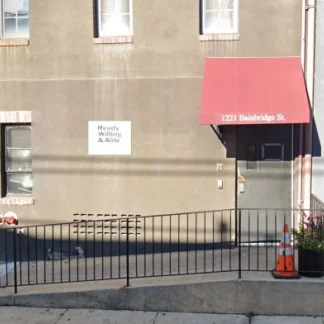AlAnon and Alateen
AlAnon and Alateen is a private rehab located in Philadelphia, Pennsylvania. AlA...
Ready, Willing & Able (RWA) provides social services in Philadelphia, Pennsylvania. The program center strives to break the cycles of homelessness, addiction, and criminal recidivism. They can also offer referrals to specialized programs such as alcohol and drug rehab treatment.
Ready, Willing & Able offers dormitory-style transitional housing, providing a stable living environment for its residents. This setup is crucial in offering a secure foundation as participants work towards personal and professional goals.
Participants engage in paid work opportunities and receive vocational training. This not only provides practical skills and work experience but also fosters a sense of responsibility and self-worth, essential for successful reintegration into society.
Recognizing the importance of education, the program includes adult basic education. This aspect of the program is aimed at enhancing literacy and other fundamental skills, crucial for personal development and better job prospects.
Ready, Willing & Able assists residents with job placement upon completion of training. This service ensures that graduates have a smooth transition into the workforce, securing sustainable employment.
The program provides comprehensive social support services. These services are designed to address various personal challenges and barriers, supporting residents in their journey toward independence.
Ready, Willing & Able may refer clients to services that accept private insurance plans, such as Humana, Cigna, Blue Cross Blue Shield, United Healthcare, Aetna, Beacon, and more. Contact the insurer to check out-of-network benefits and coverage information because insurance plans vary.
Contact us for more information: (215) 795-3255

Connect with Ready, Willing & Able by calling their admissions team directly.
(215) 795-3255 Website Get DirectionsGroup therapy is any therapeutic work that happens in a group (not one-on-one). There are a number of different group therapy modalities, including support groups, experiential therapy, psycho-education, and more. Group therapy involves treatment as well as processing interaction between group members.
In individual therapy, a patient meets one-on-one with a trained psychologist or counselor. Therapy is a pivotal part of effective substance abuse treatment, as it often covers root causes of addiction, including challenges faced by the patient in their social, family, and work/school life.
Life skills trainings involve all the skills a person must have in order to function successfully in the world. These include time management, career guidance, money management, and effective communication. Truly successful addiction recovery is based on the ability to not only live substance-free, but to thrive. Life skills teaches the practical necessities of functioning in society, which sets clients up for success in life, and therefore sobriety.
In individual therapy, a patient meets one-on-one with a trained psychologist or counselor. Therapy is a pivotal part of effective substance abuse treatment, as it often covers root causes of addiction, including challenges faced by the patient in their social, family, and work/school life.
Life skills trainings involve all the skills a person must have in order to function successfully in the world. These include time management, career guidance, money management, and effective communication. Truly successful addiction recovery is based on the ability to not only live substance-free, but to thrive. Life skills teaches the practical necessities of functioning in society, which sets clients up for success in life, and therefore sobriety.
Life skills trainings involve all the skills a person must have in order to function successfully in the world. These include time management, career guidance, money management, and effective communication. Truly successful addiction recovery is based on the ability to not only live substance-free, but to thrive. Life skills teaches the practical necessities of functioning in society, which sets clients up for success in life, and therefore sobriety.
AlAnon and Alateen is a private rehab located in Philadelphia, Pennsylvania. AlA...
COMHAR – Strawberry Manison Health is a private rehab located in Philadelphia, P...
Childrens Service is a private rehab located in Philadelphia, Pennsylvania. Chil...
AA – Alcoholics Anonymous – Moyamensing Avenue is a non-profit rehab located in ...